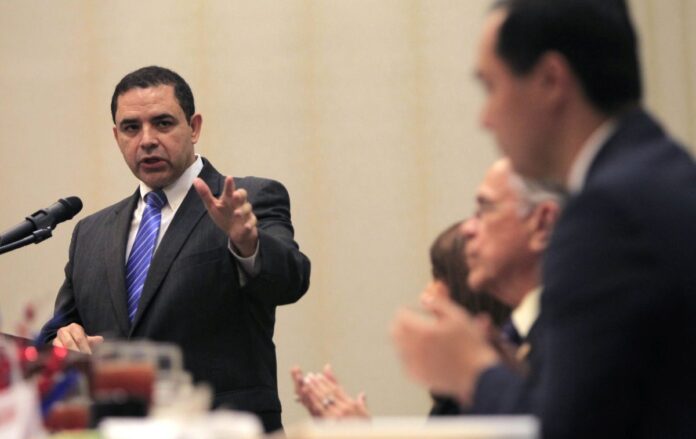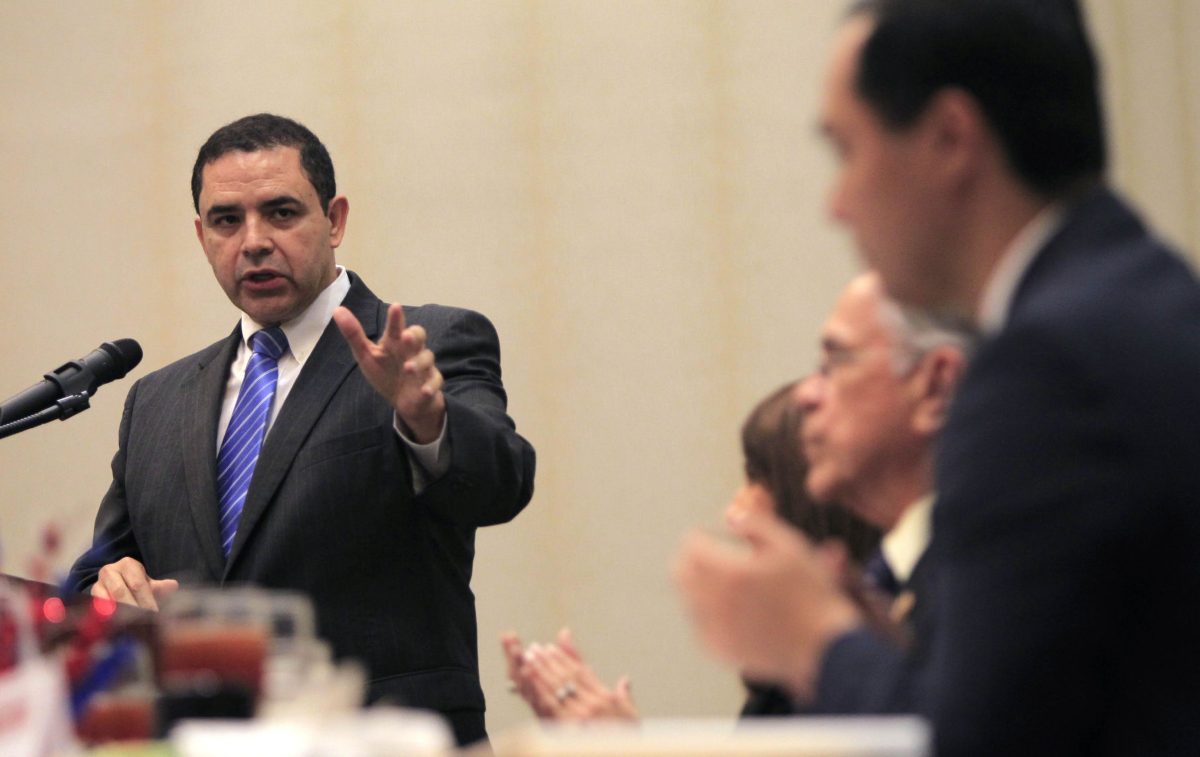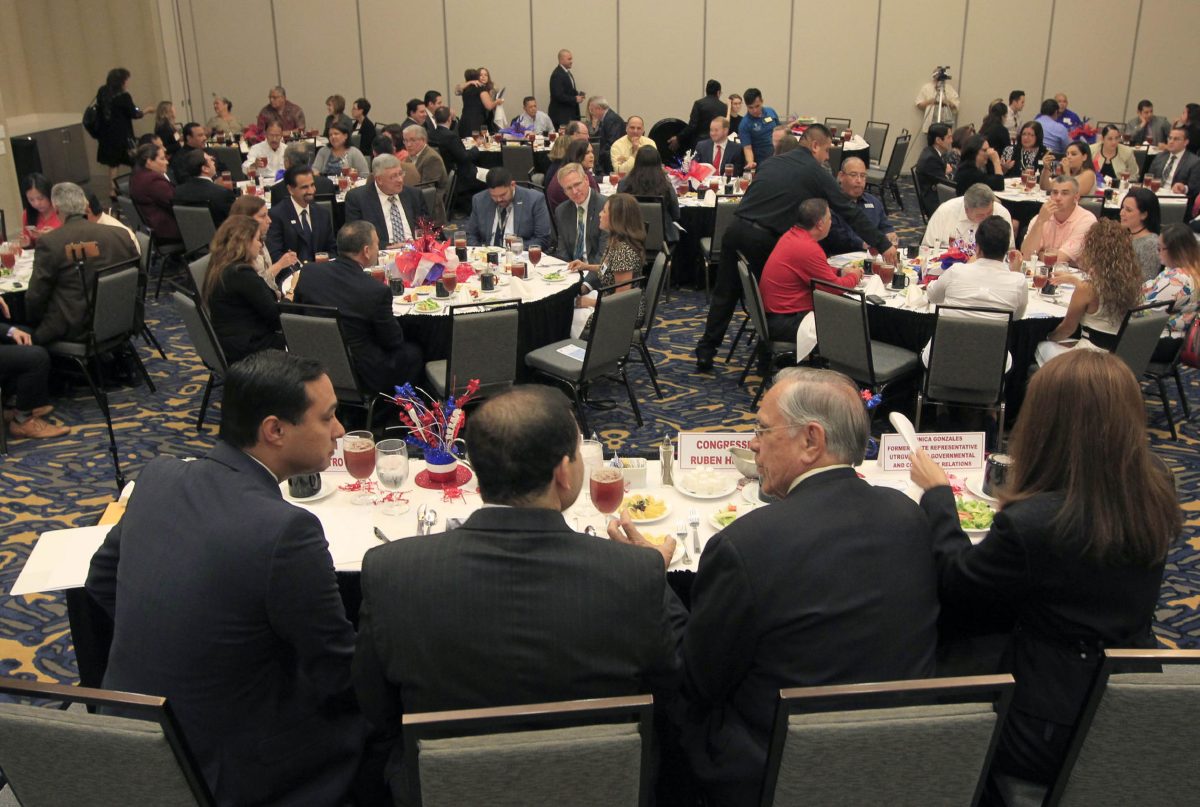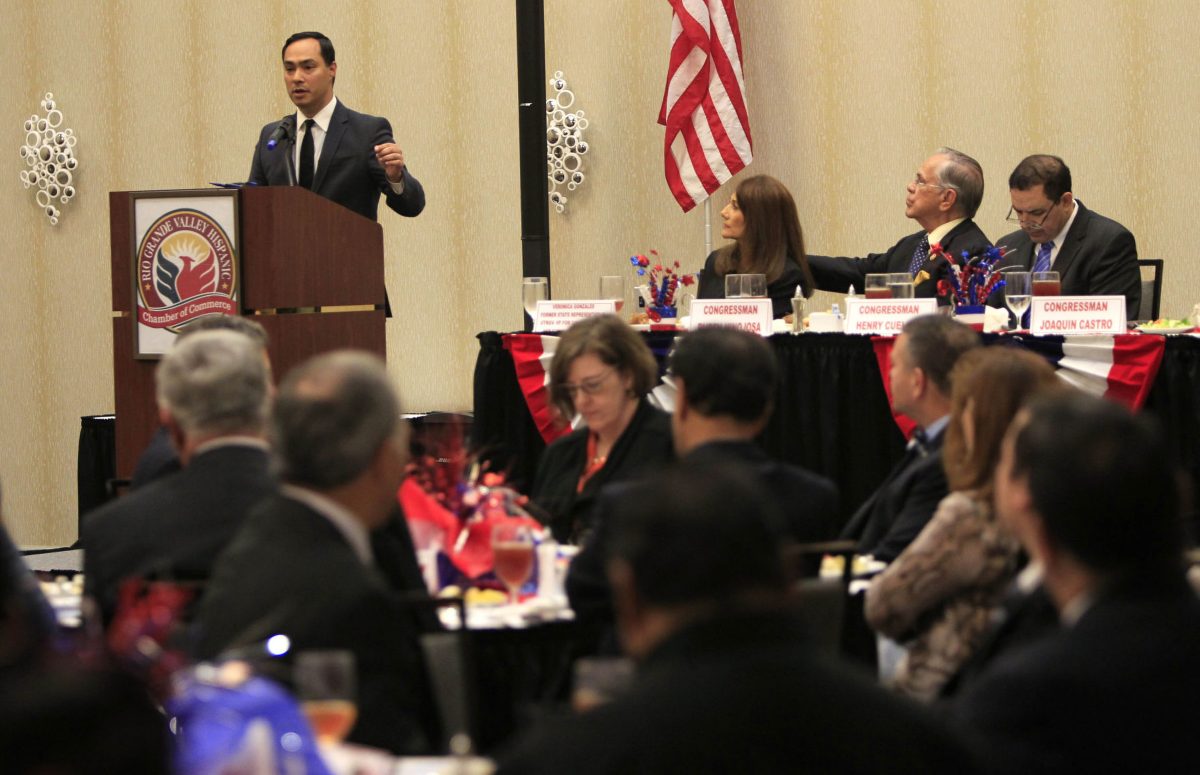
McALLEN — Just a few weeks ahead of the general election, three U.S. congressmen spoke to Valley leaders, shifting the focus off the presidential race to their legislative agenda.
McALLEN — Just a few weeks ahead of the general election, three U.S. congressmen spoke to Valley leaders, shifting the focus off the presidential race to their legislative agenda.
U.S. Reps. Henry Cuellar, Rubén Hinojosa and Joaquín Castro addressed the Rio Grande Valley Hispanic Chamber of Commerce during a luncheon Wednesday to discuss education, transportation, trade, immigration reform and border security.
“Trade issues are of vital importance to the Rio Grande Valley,” said Hinojosa, D-McAllen.
“The McAllen-Edinburg-Mission MSA has grown from exporting over $3 billion in 2005 to $5.3 billion in 2015,” he said citing the Office of U.S. Trade Representative.
Hinojosa said he supported the Trans Pacific Partnership because of the importance of trade in a region so close to the border.
“I firmly believe that strong and fair trade deals are necessary to ensure this growth continues,” he said.
Cuellar, D-Laredo, who sits on the appropriations committee, said they are working to get the Department of Agriculture to implement the 10-20-30 formula, a provision in the American Reinvestment and Recovery Act that directs at least 10 percent of rural development investments be made in impoverished communities and counties where at least 20 percent of the population had lived below the poverty line for the last 30 years.
He said the move would be beneficial to cities around the border and bring in $1.3 trillion to the area.
Cuellar said he also supported the Trans-Pacific Partnership, a divisive trade agreement among 12 Pacific Rim countries from which even Democratic nominee Hillary Clinton has distanced herself.
“I think my labor friends are wrong,” he said, stating that many countries were already sending their goods into the United States. “What we’re trying to do is lower the tariffs on the other countries so we can send our products over there.”
He added that the majority of the companies that would benefit from the agreement would be small- and medium-sized companies and would particularly benefit Hispanics as the fastest-growing population.
Cuellar also argued Hispanics greatly contributed to the nation’s economy, a point he made in direct contrast to comments made by the Republican presidential candidate.
“He’s talking about how Hispanics are going to ruin this country and how they’re going to take jobs away,” he said.
“When you look at the purchasing power of Hispanics here in the United States, $1.3 trillion just last year,” he said. “You can get the GDP of Mexico, the GDP of the Dominican Republic, get one of the Central American countries — let’s say Guatemala, Honduras — put those three countries together and the GDP of those countries, and they don’t even match the Hispanic purchasing power here in the United States.”
The controversial Republican presidential candidate was the he-who-must-not-be-named of the event with not one of the speakers mentioning Donald Trump by name.
“ I can’t remember an election that I’ve been more anxious to be done with than this one,” said Castro, D-San Antonio.
He warned that the country should not return to the days of blatant segregation and internment of minorities.
“In every generation there have been politicians who have sought to divide Americans stoking fear and resentment,” he said. “And in every generation there have been Americans who have stood up and pushed back.”
Castro said border security is important but added it was important to dispel the myth that border cities are dangerous.
“I always try to remind people that cities like El Paso, Laredo, McAllen, Del Rio — cities along the border — are some of the safest cities in the United States,” he said. “And they shouldn’t be painted as war zones.”







